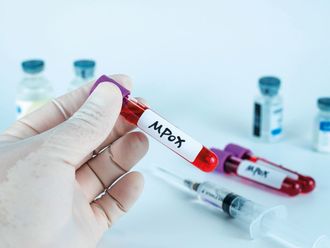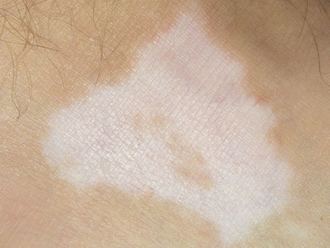Are you someone who needs a caffeine kick as soon as you wake up? Do you find yourself slurping through countless cups to keep your energy levels up during the day? If this sounds familiar, you’re not alone. In fact, caffeine is the most widely consumed drug on the planet.
According to Healthresearchfunding.org, 90 per cent of the world’s population consume caffeine, as either food or drinks, each day. It’s widely known that caffeine can be found in tea, coffee and sodas such as cola. The stimulant is also found in chocolate, certain types of ice cream and even in certain brands of vitamin water. If you start your day with a chocolatey cereal, then you are most probably consuming caffeine.
Here in Dubai, caffeine and more specifically coffee consumption has a significant cultural role in society, for Emiratis and expats alike. According to a Euromonitor report, in 2015, the UAE spent more than $544.5 million (Dh2 billion) on coffee and the figures are rising sharply each year. So how much caffeine should you be consuming and what are the benefits and side effects of consuming too much or too little?
Side effects
“For most adults, we recommend up to 400mg of caffeine per day,” says Dr Wafaa Ayesh, Clinical Nutritional Director, Dubai Health Authority (DHA). “This is equivalent to around two to four coffees or 10-12 cans of soft drinks.” Different types of coffee also contain significantly different amounts of caffeine. For instance, five shots of espresso is roughly equivalent to one Western coffee from a store, which can contain as much as 300mg of caffeine.
For infants, Dr Wafaa believes that parents should be cautious with the amount of the stimulant they allow their offspring to consume. “For children we don’t recommend too much caffeine,” she says. “Caffeine can be found in foods such as chocolate and it’s not advisable for them to have more than 200mg per day. This applies to children who are aged four or above. In my opinion, caffeine isn’t appropriate for children. Under the age of 12, then occasionally we recommend caffeine for patients who are diagnosed with attention deficit hyperactivity disorder but at that age, they should only consume a maximum of 45mg per day.
For teenagers between the ages of 15 and 18, I’d recommend around 100g a day.”
Most of us have experienced the jittery feeling that occurs because of too much coffee. Your palms can become sweaty and your heartbeat can rise. Other side effects can include insomnia, muscle tremors, migraines and an upset stomach.
People’s sensitivity to caffeine varies from case-to-case and people who consume caffeine less frequently are more likely to have an extreme reaction. A 2008 report from the Harvard School of Public Health found that it was in fact safe to drink up to six cups per day and that there was no significant increase in the risk of cardiovascular disease.
Here in Dubai, with its prevalence of cafés and coffee shops, it’s a common problem for individuals to consume more caffeine than they should. In fact, most patients that Dr Wafaa encounters consume the stimulant to excess. “They drink many things that contain caffeine without even noticing and they only realise when they have symptoms. These symptoms include migraines, insomnia, tiredness, restlessness, stomach upsets and heart palpitations. When we go back to the patient’s history and ask them how many cups of coffee they had that day, they say that they’ve consumed lots.”
If you consume too much caffeine then you have to drink a lot of water because caffeine is diluted by water. For instance, if you drink a small glass of Turkish coffee, then you should drink one glass of water. This is the approximate equivalent to four cups of coffee or ten cans of cola. If you’re consuming higher amounts, there’s a probability that you will suffer from negative health side effects.
Potential health benefits
In 2015, a study of more than 200,000 people over a period of more than 20 years found that those who regularly consumed between one and five cups of coffee per day were slightly less likely to have died by the end of the study than those who didn’t. “It’s good to have coffee in your daily routine but you should stick to the recommended daily allowances,” says Dr Wafaa.
Cold turkey
Within around 45 minutes of consuming caffeine, it enters your blood stream and can remain there for up to 12 hours to be cleared from the body. Yet, in just ten minutes, the body has a 50 per cent concentration of caffeine, providing that quick hit that people look for in the morning. If you regularly consume more than two cups of coffee per day, you may experience withdrawal symptoms when you cease. According the UK’s National Health Service, if you do indeed suffer from headaches as you cut caffeine out of your diet, you consider gradually reducing your consumption to lessen the symptoms.
Weight loss
You may have noticed that caffeine is often an ingredient in weight loss pills but that doesn’t necessarily mean that it is a long-term solution to obesity. The US-based non-profit Mayo Clinic believes there’s no evidence that the stimulant can lead to “significant or permanent weight loss”. Caffeine has been shown to increase thermogenesis, which is the process through which the body creates heat and energy from the digestion of food. Some drinks in particular are actually very high in calories, with some varieties such as a mocha from popular coffee shops containing more than 600 calories.
Essentially, as with many foods and drinks, caffeine is perfectly safe but the key is not to stick to the recommended allowances and enjoy your favourite drink in good health.













